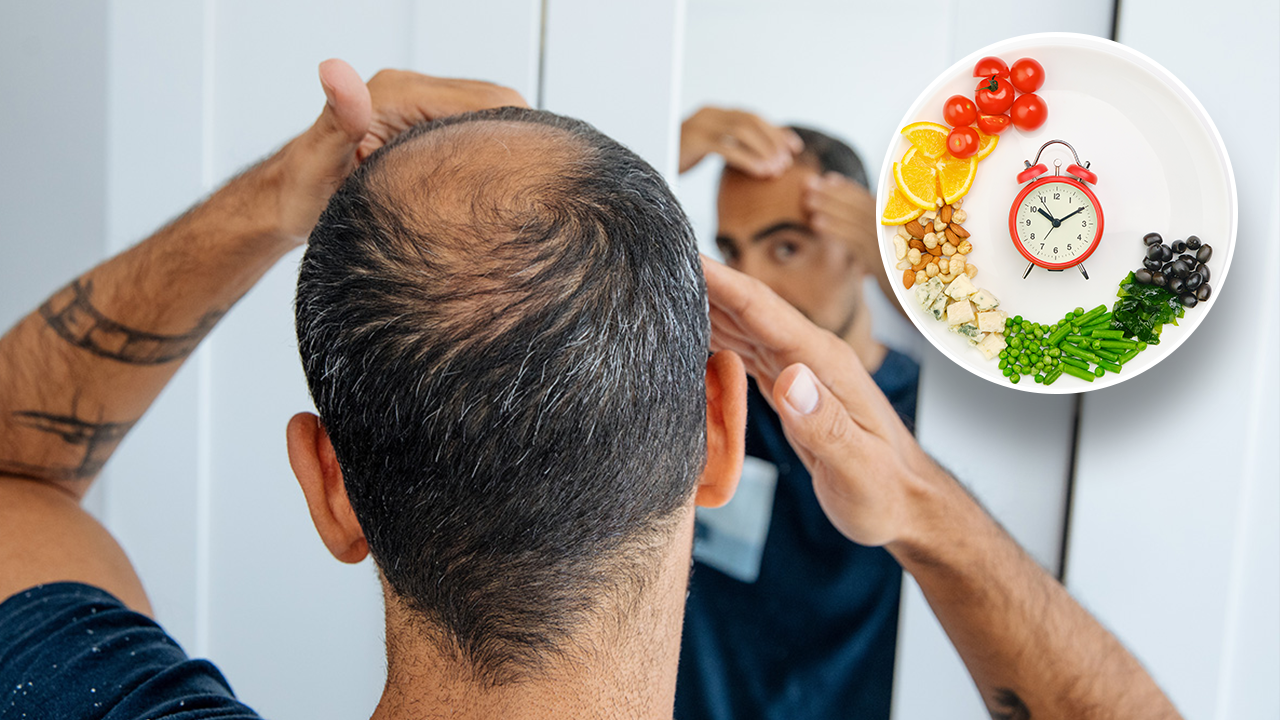Unveiling the Hidden Impact of Popular Diets on Hair Growth
In the quest for health and wellness, many individuals turn to popular diets, often seeking to shed pounds or improve overall well-being. However, recent studies have revealed a lesser-known consequence of these dietary trends: their impact on hair growth. As millions adopt various dietary approaches, from ketogenic to vegan diets, understanding their effects on hair vitality becomes increasingly crucial.
The Connection Between Diet and Hair Health
Hair growth is a complex biological process influenced by various factors, including genetics, hormones, and nutrition. The nutrients we consume play a significant role in the health of our hair follicles. Hair is primarily made up of protein, specifically keratin, and requires a variety of vitamins and minerals to grow optimally. Diets lacking essential nutrients can lead to hair thinning or loss, making it essential to consider how popular diets may affect hair health.
Popular Diets: A Closer Look
Let’s take a closer look at some of the most popular diets and their potential hidden impacts on hair growth:
- Keto Diet: The ketogenic diet emphasizes high-fat and low-carbohydrate intake, which can lead to rapid weight loss. While many individuals report improved energy levels and mental clarity, the lack of carbohydrates can result in deficiencies in vitamins like biotin and folate, both crucial for hair health.
- Paleo Diet: This diet focuses on whole foods akin to what our ancestors consumed. While it promotes the intake of lean meats, fruits, and vegetables, some individuals may find it restrictive, leading to a lack of essential nutrients like omega-3 fatty acids, which are vital for maintaining healthy hair.
- Vegan Diet: A vegan diet excludes all animal products and can be incredibly healthy when well-planned. However, it can also lead to deficiencies in vitamin B12, iron, and protein, all of which are necessary for hair growth. It’s crucial for those on vegan diets to seek alternative sources of these nutrients.
- Intermittent Fasting: This approach involves cycling between periods of eating and fasting. While it may promote weight loss and metabolic health, prolonged fasting can lead to nutrient deficiencies that may negatively impact hair growth.
The Role of Key Nutrients
Understanding the role of specific nutrients is essential when considering the impact of diets on hair growth. Here are some vital nutrients and their contributions:
- Protein: Hair is primarily composed of protein. Insufficient protein intake can lead to hair shedding and thinning. It’s important to ensure adequate protein consumption, regardless of dietary preference.
- Iron: Iron deficiency can cause anemia, leading to hair loss. Foods rich in iron include leafy greens, legumes, and fortified cereals. Vegans and vegetarians should pay particular attention to their iron sources.
- Vitamins A and C: These vitamins are crucial for sebum production, which keeps hair moisturized. Foods like carrots and citrus fruits are excellent sources.
- Omega-3 Fatty Acids: These essential fats promote scalp health and hair vitality. They can be found in fatty fish, walnuts, and flaxseeds.
- Biotin: Often touted as a “hair growth vitamin,” biotin is essential for keratin production. Eggs, nuts, and whole grains can help ensure adequate intake.
Long-Term Implications of Dietary Choices
As more individuals adopt these popular diets, the long-term implications on hair growth and health are becoming increasingly evident. For instance, while the keto diet may yield quick results in terms of weight loss, the potential for nutrient deficiencies, particularly in the absence of carbohydrate sources, can pose risks to hair vitality.
Similarly, the vegan diet, while environmentally sustainable and beneficial for overall health, requires careful planning to ensure that individuals receive all necessary nutrients for hair growth. Notably, many people may not realize that dietary choices can have cascading effects on overall health, including conditions like telogen effluvium, a common form of hair loss triggered by stress, hormonal changes, or nutritional deficiencies.
Strategies for Maintaining Hair Health on Popular Diets
To navigate the complexities of popular diets while safeguarding hair health, here are some strategies:
- Plan Balanced Meals: Regardless of the diet, ensure that meals are balanced with adequate protein, healthy fats, and a variety of fruits and vegetables.
- Supplement Wisely: If following a restrictive diet, consider supplements for nutrients that may be lacking, such as vitamin B12 for vegans or omega-3s for those on a keto diet.
- Stay Hydrated: Water is essential for overall health, including hair health. Proper hydration supports nutrient absorption and promotes healthy hair follicles.
- Consult a Professional: If unsure about dietary choices and their implications, consult a healthcare provider or a registered dietitian who can provide personalized guidance.
Conclusion: A Holistic Approach to Health and Hair Growth
As the popularity of various diets continues to rise, the relationship between these dietary choices and hair growth cannot be overlooked. It is crucial to understand that while diets may offer immediate benefits, their long-term effects on overall health—including hair vitality—should be a priority. By being mindful of nutrient intake and adopting a balanced approach, individuals can enjoy the benefits of popular diets while maintaining healthy and vibrant hair.
Ultimately, embracing a holistic approach that considers both dietary choices and their impact on hair health will empower individuals to make informed decisions that promote both their physical well-being and aesthetic goals. So, the next time you consider jumping on the latest diet trend, take a moment to think about how it might affect your hair—and make sure to prioritize your hair’s health along the way!
See more WebMD Network



